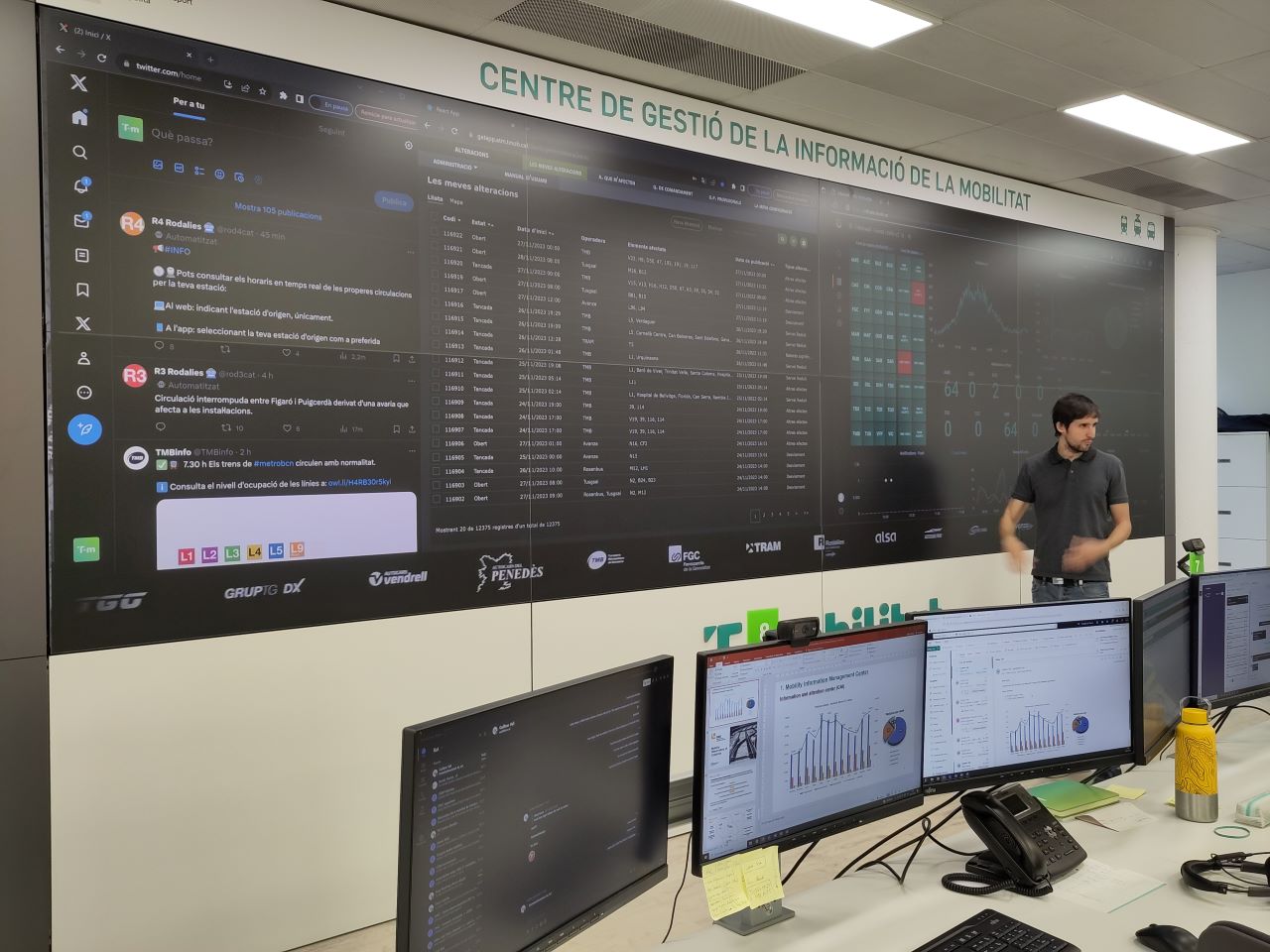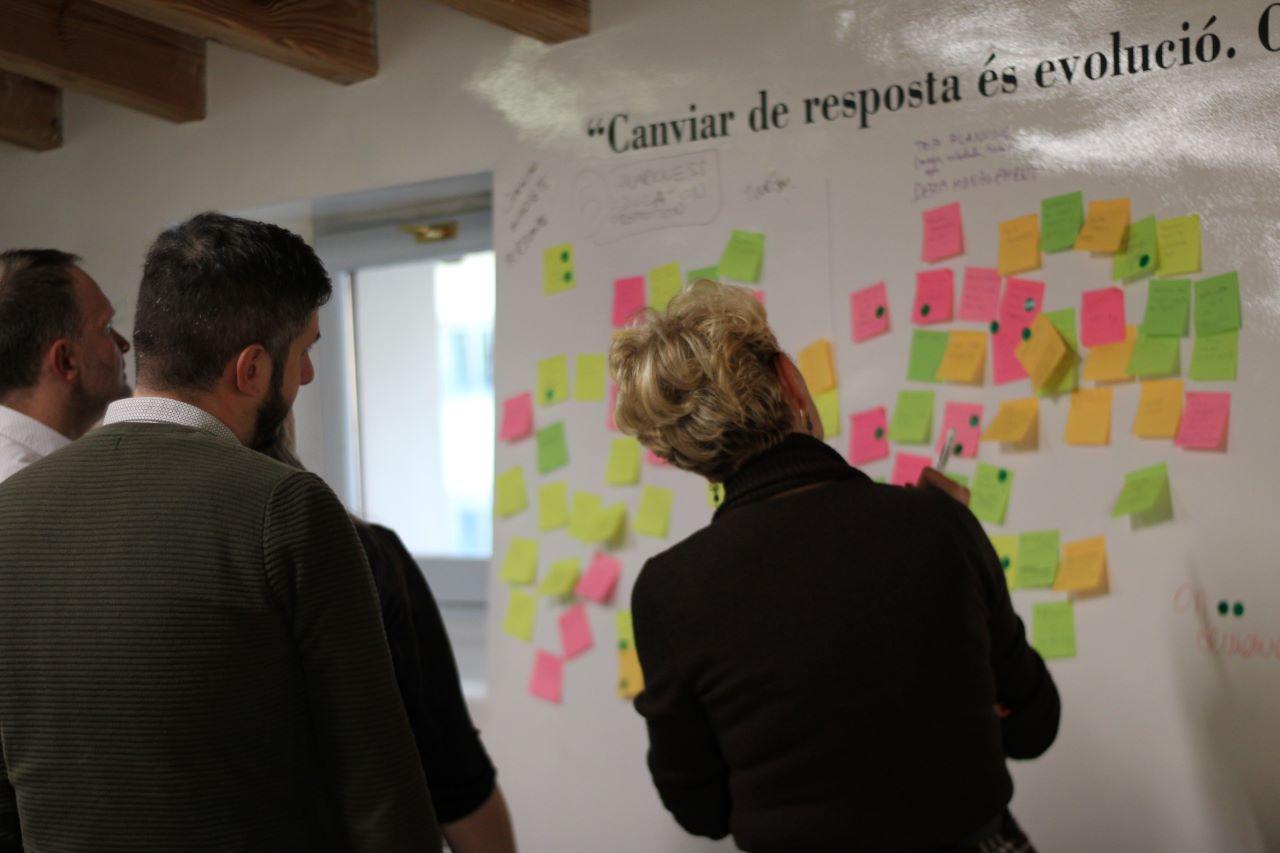Bridging the Urban-Rural Divide
Beyond the Urban addresses a critical urban challenge-the growing disconnection between rural and urban areas. This disconnection has given rise to social exclusion, economic disparities, and environmental challenges, affecting the well-being of residents in both settings. Dr. Clyde Hutchinson, the lead expert on the programme, conducted an extensive analysis of sustainable rural-urban connectivity during a series of intensive two-day visits across regions. The findings revealed common challenges faced by communities throughout Europe, highlighting the need to expand the focus beyond urban areas and explore diverse transportation options, moving beyond the reliance on cars.
To delve into these challenges, Creacció (the economic development Agency for Osona area) hosted a transnational meeting in Vic, bringing together the consortium for a two-day collaborative session at the end of November. The agenda was packed with site visits, design thinking-led brainstorming, and workshops covering gender, persona building, and data storytelling. The meeting concluded with partners collaboratively deciding on main themes to focus on over the next three years, emphasizing the need to move beyond the car to enhance rural-urban connections. And a site visit to the CGIM and OMC in Barcelona.
Themes for Transformation
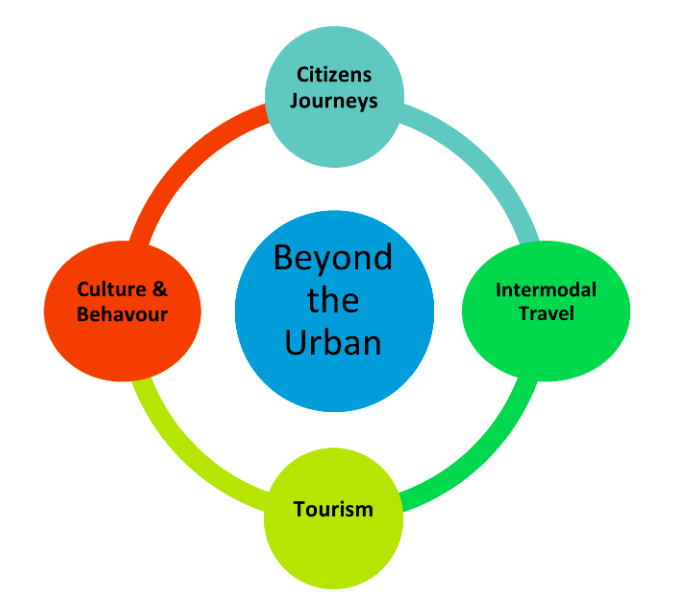 Over the course of the trips and the recent meeting, four key themes have emerged that will act as guiding principles for the work ahead. Those include Citizen’s Journeys through Regions, Intermodal Transport, Transport for Tourism, and Culture and Behaviour.
Over the course of the trips and the recent meeting, four key themes have emerged that will act as guiding principles for the work ahead. Those include Citizen’s Journeys through Regions, Intermodal Transport, Transport for Tourism, and Culture and Behaviour.
Citizen’s Journey through Regions
Municipalities like Santa Maria da Feira illustrate the complexity of balancing regional and municipal mobility needs. Several of the partners grapples with lower municipal self-containment, emphasising the necessity of addressing both local and regional transportation challenges and highlighting the need for nuanced solutions.
Observations of high private vehicle modal shares, as seen in Kočani for example, underscore the urgency to shift towards sustainable and alternative transport modes. This shift aims to alleviate congestion, reduce environmental impact, and enhance overall urban mobility.
The low usage of public transport, exemplified by Osona with only 4.8% of trips, underscores the imperative to incentivise and improve public transportation options. This could involve investments in infrastructure, enhanced connectivity, and awareness campaigns to shift public perception and encourage a transition to more sustainable modes. A dedicated meeting in Tartu, Estonia, will specifically address this topic, aiming to enhance public transportation infrastructure and change public perceptions to encourage sustainable transportation choices.
Intermodal Transport
Several municipalities struggle with transit traffic and congestion, emphasizing the need for well-coordinated intermodal transport systems. As crucial transportation nodes, these regions necessitate effective integration between different modes of transport to streamline traffic flow and enhance overall efficiency.
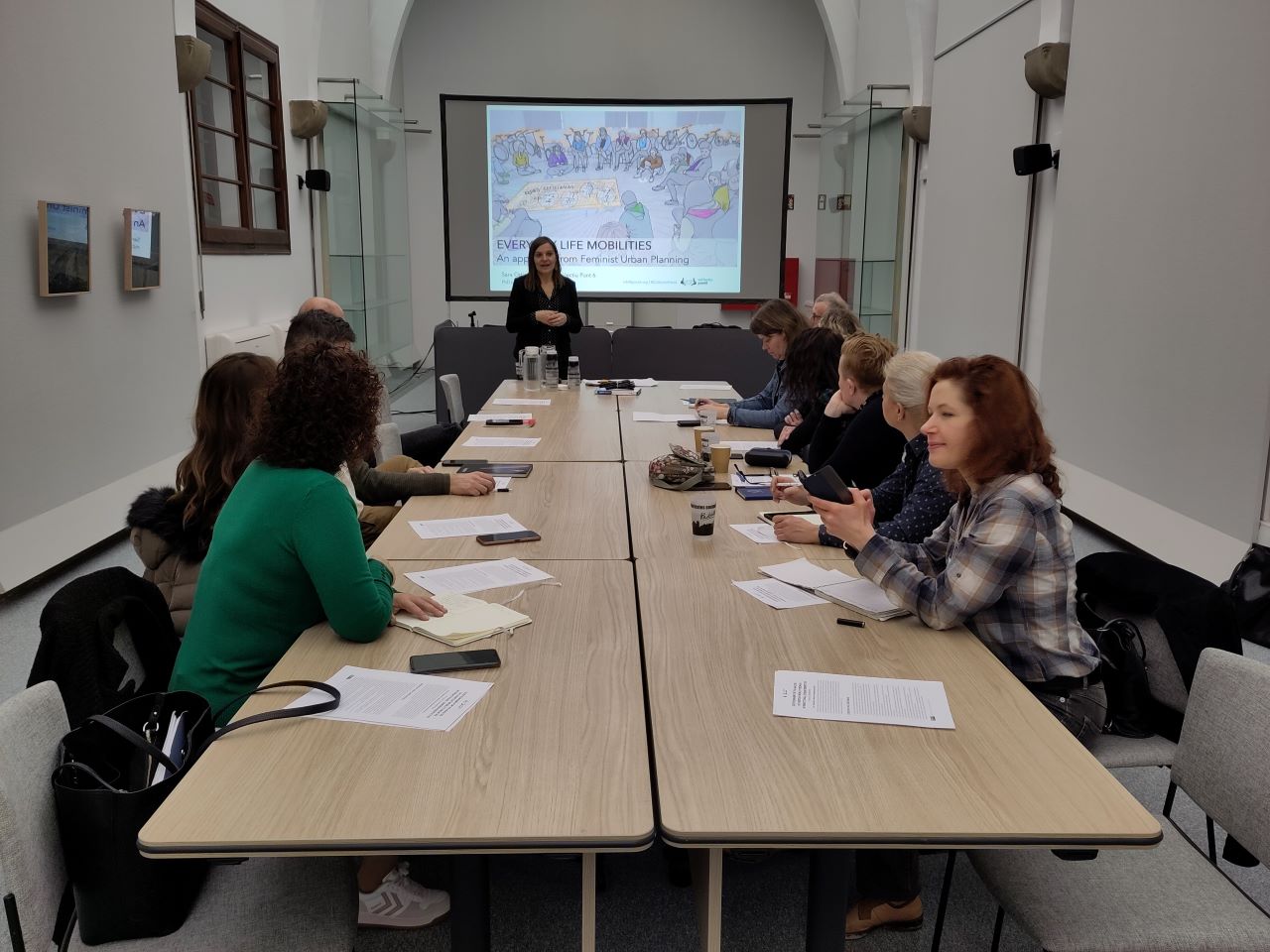
The significance of being transportation hubs underscores the need for interconnected transport modes. This involves seamless transitions between various modes such as trains, buses, and bicycles, enhancing the overall efficiency of the transportation network. The consortium will come together in Bucharest, Romania, to delve into potential solutions in this space, focusing on creating well-coordinated and interconnected transport systems. With a special focus on the rural areas particularities.
Tourism
From Machico's location on Madeira, where 75% of the population is employed in tourism-related services, to parts of Szalbolcs ambitions for tourism development from a significantly lower base, it is evident that tourism plays a pivotal role in shaping the mobility landscape. Municipalities need to balance the benefits of tourism, such as economic growth, with the challenges it poses to local transportation infrastructure and environmental sustainability. Locations such as Treviso, which is leading the way in terms of sustainable and active tourism, have an opportunity to share their experiences with the other partners.
The group will meet in Bram, France, to explore how to achieve a balance between catering to tourists' transportation needs and maintaining a sustainable and efficient local mobility system. Municipalities must consider infrastructure improvements, traffic management, and sustainable transport options to enhance the overall tourist experience while minimizing negative impacts on the local community.
Cultural and Behavioural Challenges
A majority of municipalities grapple with resistance to alternative transportation modes. Overcoming this resistance requires targeted awareness campaigns and initiatives to educate the population about the benefits of sustainable transportation, emphasizing factors such as reduced congestion, improved air quality, reduction of carbon footprint and individual cost savings.
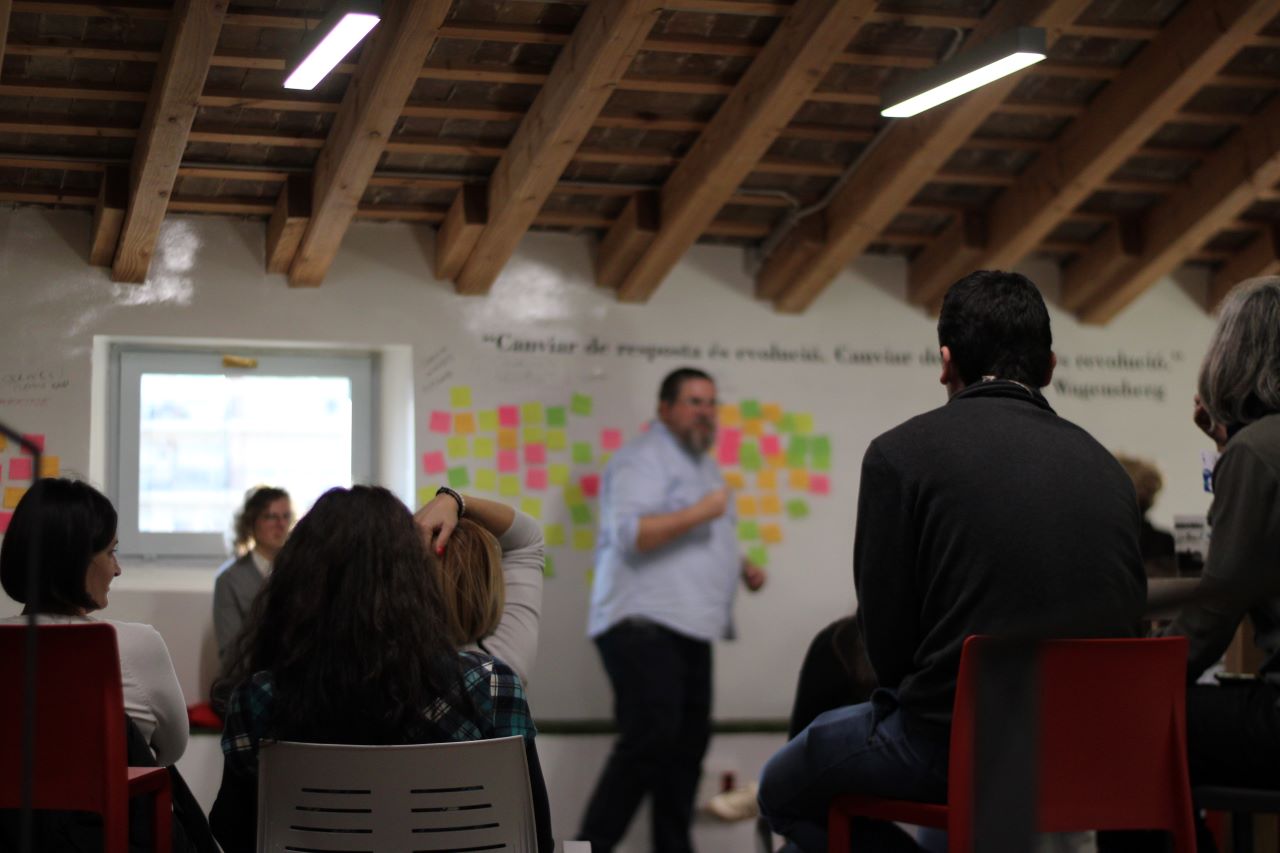
Implementing behavioural change techniques is essential in locations where cultural shifts are necessary. This could involve incentivizing public transport use, promoting carpooling, and creating a positive narrative around sustainable mobility. Education and engagement initiatives can play a pivotal role in fostering a broader societal acceptance of alternative transportation methods.
Hradec Králové, in Czechia, will be the lead for a meeting that explores cultural shifts around public transportation, particularly those that necessitate long-term strategies focused on changing perceptions and habits. Municipalities should invest in educational programs, community engagement, and infrastructure improvements to create an environment where sustainable modes of transportation are not only accepted but embraced as integral components of daily life.
Collaboration Across Europe
Starting in January, the regions will start working on developing collaborative action plans designed to encourage iterative and experimental actions towards change. These plans will need to take into account the three URBACT cross-cutting issues of gender, sustainability, and digitalization, aiming to implement solutions with the support of their European partners. The first results of these initiatives are expected in 2025, along with significant learnings that can be applied elsewhere in Europe.
The Beyond the Urban initiative stands as a bold and innovative approach, challenging conventional norms to create a smarter, greener, and more connected Europe. The collaborative efforts of these diverse municipalities hold the promise of transformative change, fostering a sustainable and inclusive transportation ecosystem for years to come.
